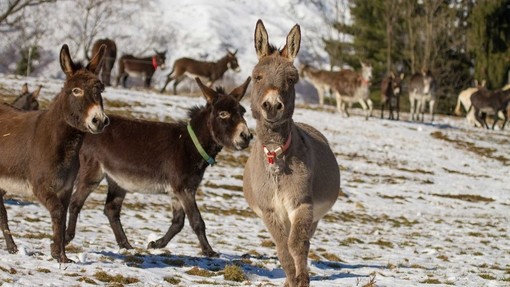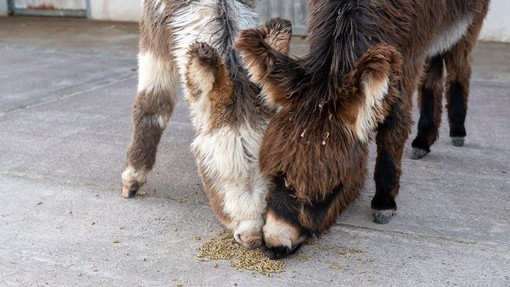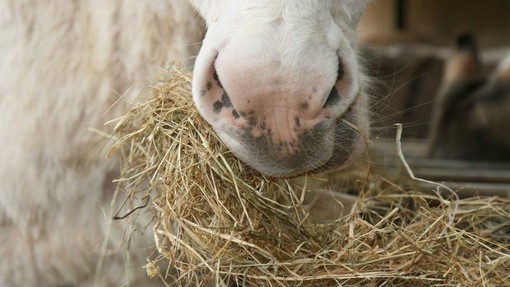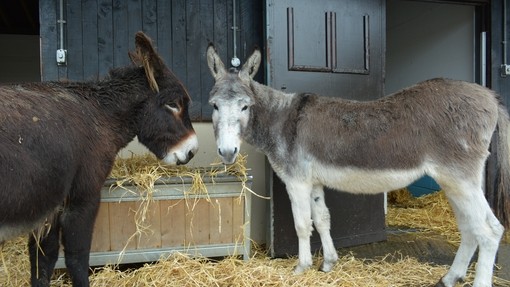Feed in moderation
We would recommend feeding only 1-2 leaves or one small handful-sized portion maximum per day.
- Swede
- Turnips
- Bananas (including skin)
- Pears
- Parsnips
- Fresh carrots - chopped (not into rounds) or freshly grated, not dried
- Fresh apples - chopped (depending on size) or freshly grated, not dried or cooking apples
- Fresh mint leaves
- Peppermint cordial - a capful added to normal feed may encourage eating
- Bramble, wild strawberry or hedgerow - grazing on these will often tempt a sick donkey as the natural behaviour of foraging stimulates the appetite.
Feed with caution
These should only be fed when there is a genuine need identified.
- Polos - high sugar levels, never feed sugar-free Polos
- Ginger biscuits - high sugar levels, check that they don’t contain animal products. These can be ground and sprinkled over food
- Bread and jam sandwich - may be useful for giving medications
- Apple puree - may be useful to put on top of a feed to help tempt an inappetant or fussy eater.
Do not feed under any circumstances
- Potatoes
- Brassicas (cabbage, brussel sprouts, broccoli, cauliflower)
- Any member of the allium family (onions, garlic, leeks, etc)
- Any product containing animal products - eg biscuits with animal fats or dairy products
- Cod liver oil or other oils of animal origin
- Chocolate, sugar lumps or sweets
- Lick-it style hanging treats - these are very high in sugar due to the molasses and donkeys can bite off chunks that can cause choke/colic
- Human food i.e. breakfast cereals or cakes
- Drinks containing caffeine or alcohol, or carbonated drinks
- Other animal feed ie goat/sheep feeds
- Mouldy products due to possible mycotoxins
- Poisonous plants
It is valuable to test the attractiveness of the various foods to determine those most favoured by your donkey. That allows you to offer the favourites as tempters when it is important to persuade the donkey to eat or to stand for a procedure.
Always introduce new feeds gradually; if you are at all unsure please check with our nutrition team.
Caution must be given when feeding a donkey with dental problems.
Generally as a rule we do not recommend feeding treats from the hand unless for training purposes as it can encourage the animal to bite.
None of the above lists are exhaustive - please contact us if you are in doubt about the safety of any other food type.




